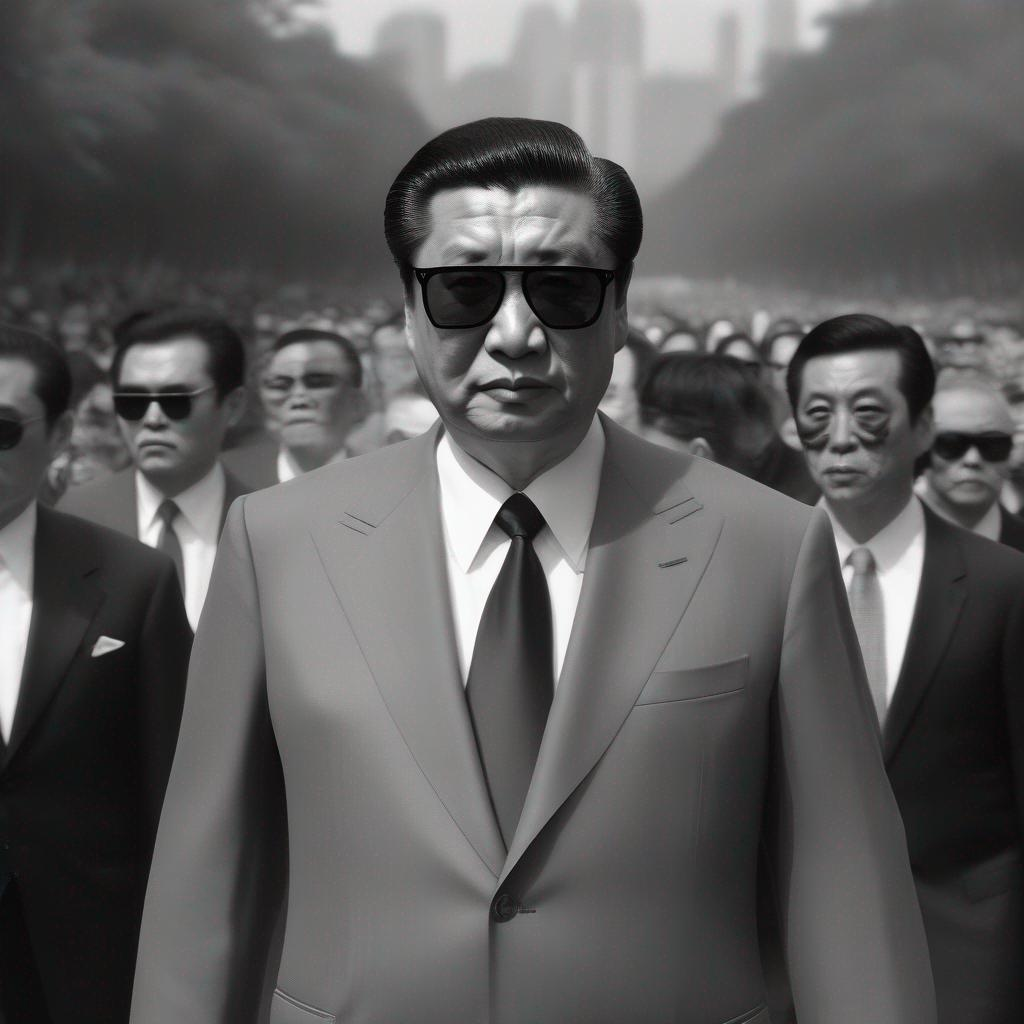It’s summer, long days for reading cool books.
(If you’re reading theory, maybe also hit us up with a cool quote you’ve read lately if there’s something poetic that sticks out!)
@Pisha@hexbear.net
@Nakoichi@hexbear.net
@robinn2@hexbear.net
@FloridaBoi@hexbear.net
@FourteenEyes@hexbear.net
@HiImThomasPynchon@hexbear.net
@copandballtorture@hexbear.net
@SunsetFruitbat@hexbear.net
@Judge_Jury@hexbear.net
@GeorgeZBush@hexbear.net
@Queryfullness@hexbear.net
@GaveUp@hexbear.net
@RonJonGuaido@hexbear.net
@StewartCopelandsDad@hexbear.net
@Wertheimer@hexbear.net
@NoGodsNoMasters@hexbear.net
@Snackuleata@hexbear.net
@Utter_Karate@hexbear.net
@TheCaconym@hexbear.net
@LeninsBeard@hexbear.net
@CTHlurker@hexbear.net
@JuneFall@hexbear.net
@duderium@hexbear.net
I’m reading Moby Dick (annotated Norman Critical Edition) and really liking it so far. The annotation helps quite a bit with understanding the historical and literary references.
Listening to The Jakarta Method thanks to a suggestion by a Hexbear user. Holy shit, I can’t believe how uninformed I was about Indonesia. Far more important for the US in the 1960s than Vietnam.
Trying to listen to Culture and Imperialism by Edward Said, but I’m finding myself bored in the first few chapters and might give up.
Theory list I am very gradually (over months) reading:
-Theories of Surplus Value
-Socialism, Utopian and Scientific
-Grundrisse
-Art in the Age of Mechanical Reproduction by Walter Benjamin
-Intellectual and Manual Labour by Alfred Sohn-Rethel
-For fun, a book from an art exhibition, called The Economy Is Spinning which takes influence from Sohn-Rethel among others
Listening to The Jakarta Method thanks to a suggestion by a Hexbear user. Holy shit, I can’t believe how uninformed I was about Indonesia. Far more important for the US in the 1960s than Vietnam.
:suharto-die: emoji needed.
I started listening to the Super Imperialism Audiobook on the youtube.
Drink every time he says “balance of payments.”
Yes, I’m dying of alcohol poisoning. Please help
Whoah, I heard it’s basically a textbook - is listening working for you?
I’m a little over an hour in so I can’t really say if its a good format for it yet.
Currently Minima/Moralia - Theodor Adorno, and Postmodernism, or The Cultural Logic of Late Capitalism - Fred Jameson.
I’m currently trying to comprehend bits and pieces from Anti-Duhring.
I’ve been reading Mutiny: A History of Naval Insurrection by Leonard F. Guttridge. It’s funny cuz he’s a labor historian and his sympathies are clearly with the sailors in most cases, but it’s published by a naval press and the intended audience is clearly officers. Also there’s a chapter on the Kronstadt sailors.
W.E.B. Du Bois’ Darkwater. I was reading about the East St. Louis Massacre of 1917 (it’s horrific) and wanted to learn more.
Just finished David Graeber’s Utopia Of Rules and while it is only a collection of essays. Some of it comes across as extremely utopian. Ostensibly it’s about bureaucracies but it presupposes that bureaucratic processes are bad and inefficient. If you like Graeber (and I generally do) I wouldn’t recommend it.
that was both the first graeber i read and still a favorite. his critique of bureaucracy is definitely limited, but he also introduced me to a feminist critique of the monopoly on violence in the first essay, and his notion that the inefficiencies of capitalism greatly mitigate scientific progress is valid. (although the physicist he cites in this essay, jonathan katz, is an extreme racist and imperialist.)
Reading The Theory of Capitalist Development by Sweezy. About 1/3rd way through I’d say and it’s been amazing.
Information Technology and Socialist Construction by Daniel Saros
Good so far, but I just started. Saw it recommended by Morozov
This sounds dope just from the title
It does, but I’ve been let down by similar books in the past. The recommendation by Morozov is making me want to finish it. Its on libgen if anyone wants it, the print copy is like $500 or some bullshit. Fuck Routledge.
So far it seems to tacitly be taking the position that socialism was impossible in the USSR, China, etc., because they had not yet fully developed capitalism (and the developed world did not experience the necessary revolutions to assist them in industrialization, etc). Which, I am a bit ambivalent about. Part of me is going “yes, yes, capital must first be sufficiently developed in order for it to be abolished”, and the other part is rolling their eyes a bit.
That said, the first section has done a decent job of laying out the Marxist conception of capital, surplus value, historical development, and the various debates around these issues. The text is much less anti-marxist-brainwormed than something from the Parecon guys like Hahnel though, Saros is a marxist at the very least.
So I’m still unsure what I will think about it overall. Maybe he is a bit of a leftcom? idk yet.
Just finished “The Devil’s Chessboard.” The book really goes out of its way to shower JFK with praise, but it’s quite informative with regards to how the security apparatus took a central executive position in US government. I’m pretty convinced at this point that Kennedy was killed by an op spearheaded by Allen Dulles
Since finishing the book, I’ve started reading Marx’s Capital. I didn’t expect to read the phrase “One coat equals twenty yards of linen” over 50 times, but here we are. The book got much more engaging once it started laying out what “capital” is and how it differs from an equal exchange of commodities.
Recently started Babel by RF Kuang. Couldn’t get back into the Poppy War trilogy after the wait for The Burning God but this one’s holding my interest so far.
Losurdo’s Liberalism: A Counter-History. It’s a banger. I’ve read excerpts of his before, and really liked them, but his books are wild. He quotes like a motherfucker, which is incredibly insightful, but takes a bit longer to read than other authors I’ve read. Literally 145 citations in the first 35 pages.
This is on my list, thinking of ordering it before the end of the year.
Four books I think of:
- Primavera con una esquina rota by Mario Benedetti for some Spanish practice, takes place in the 70s and follows a few characters affected by the Uruguayan dictatorship
- Capital vol 2, no further explanation needed, I haven’t been reading as much of it as I should tbh, but I am continuing to slowly make my way through it
- The Tondrakian Movement, by Vrej Nersessian, about a Christian sect largely based in the peasantry in 9th to 11th century Armenia that admittedly I first heard about in a CK2 mod lmao, but who were anti-feudal, pretty pro gender equality, etc.
- I’m going to decline to name this one lol
I’m going to decline to name this one lol
It’s Gay Billionaire Dinosaurs in my Butt isn’t it
Been re-reading Kafka’s The Metamorphosis and suspecting that Gregor Samsa did not actually turn into a beetle. I think it’s all in his head and that he’s just crazy and thinks he’s an insect. I think this because:
- he gets transformed into a “vermin,” which could actually be a person;
- Kafka’s father, with whom he had a Freudian relationship, frequently called people he disliked “vermin”;
- Kafka said that the “vermin” should not be illustrated at all;
- does Gregor’s family really act like they’re in the same house as a giant beetle or a crazy person?
Hexbear atm. Very busy in physical world.
Last book I read was See What You Made Me Do, which was about domestic violence but was also very pro-cop (and anti-dprk)









